Election 2024: Huntington Beach conservative leaders say they’re confident Measures A and B will pass
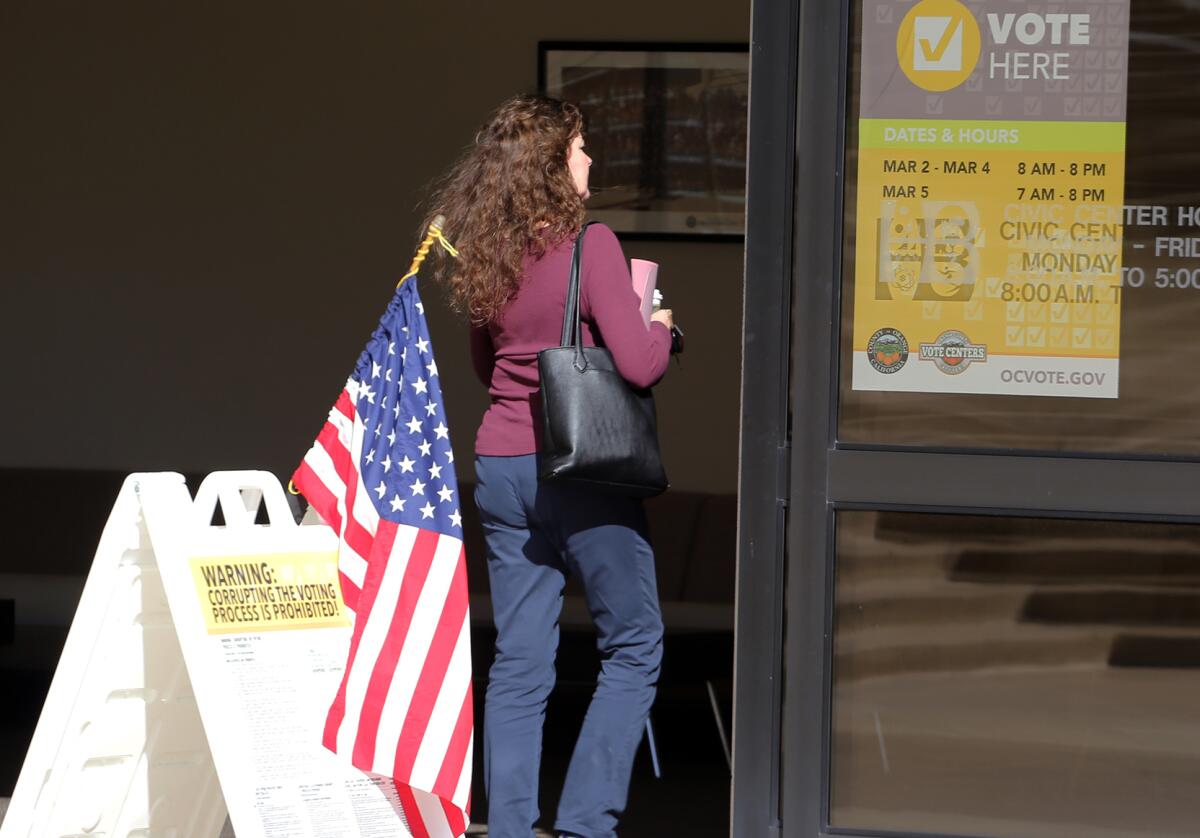
- Share via
Voter identification requirements, a hot topic in Huntington Beach, could be coming to the coastal community as soon as 2026.
Measure A continued to garner “yes” votes in an update provided Wednesday night by the Orange County Registrar of Voters, as did Measure B, while Measure C continued to trail behind.
Huntington Beach Mayor Gracey Van Der Mark, who endorsed each of the measures along with her conservative majority City Council colleagues, expressed confidence Wednesday that voter support for Measures A and B would hold.
“A lot of the people I spoke to are pretty passionate about it,” she said. “You feel very strongly, either one way or another. That got people to come to vote, whether they were in support or against. I’m just glad that the community’s involved, and we gave them the option. It wasn’t just seven council members one way or another. We gave the community the opportunity to voice how they feel, and they made their voices heard at the ballot box.”
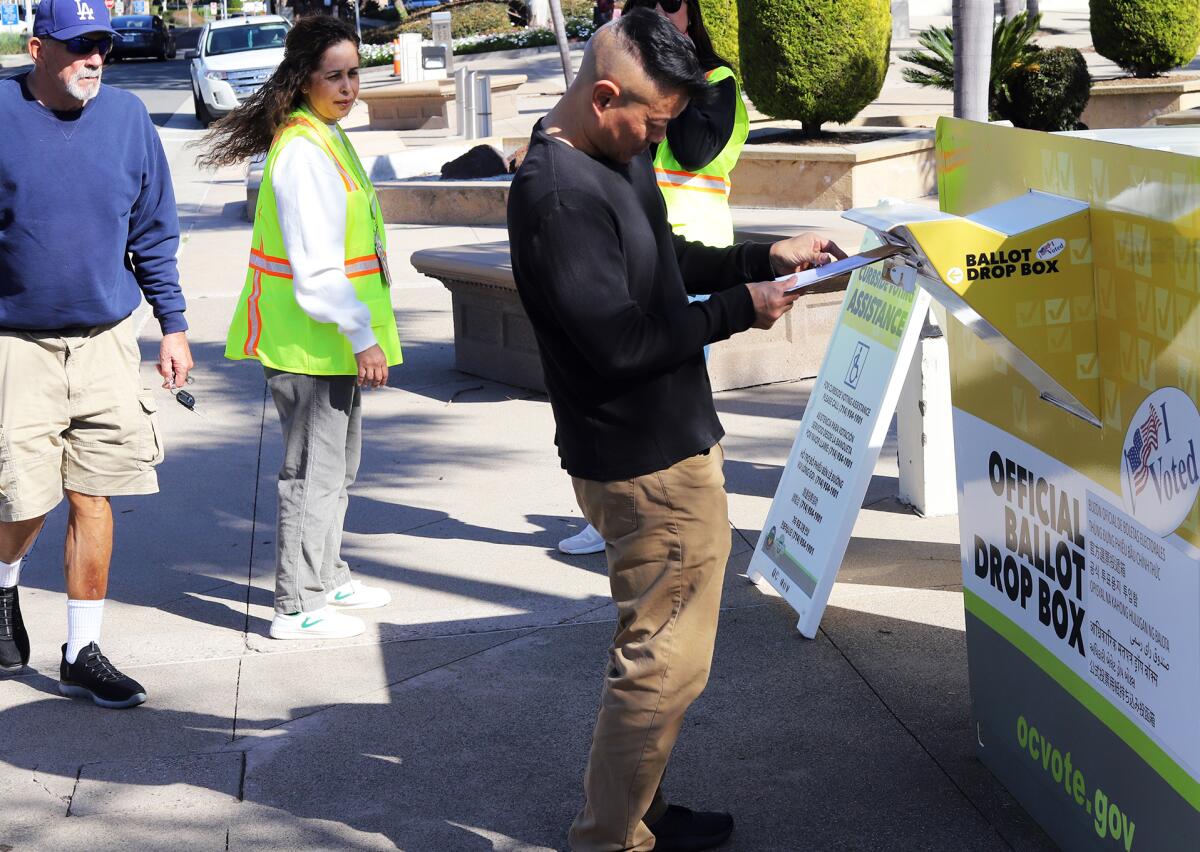
In the most recent count, Measure A led 20,774 votes to 17,634 (54.1% to 45.9%), while Measure B led 22,337 to 16,064 (58.2% to 41.8%). There were 19,864 votes against Measure C, and 17,905 in favor (52.6% to 47.4%).
The Orange County Registrar of Voters reported Wednesday evening it still had an estimated 273,494 mail-in and drop-box ballots to process countywide, leaving thousands more Surf City votes to be counted.
Updates will be issued each weekday at 5 p.m. until every ballot is counted.
Measures A, B and C seek to update the city charter, which hasn’t been changed since 2010, in different ways.
Measure A allows, but doesn’t necessitate, that the city implement voter identification requirements in Huntington Beach. It also allows for more local control overall of municipal elections, including ballot drop box monitoring and at least 20 ADA-accessible in-person polling locations.
Thirty-six states require or request that voters show ID at the polls, but California is not one of them.
“We’re not reinventing the wheel,” Van Der Mark argued Wednesday. “It’s not a novel concept ... It’s just an ID. It’s not like we’re asking for people to take extraordinary measures. It’s not anything that most people don’t currently have already.”
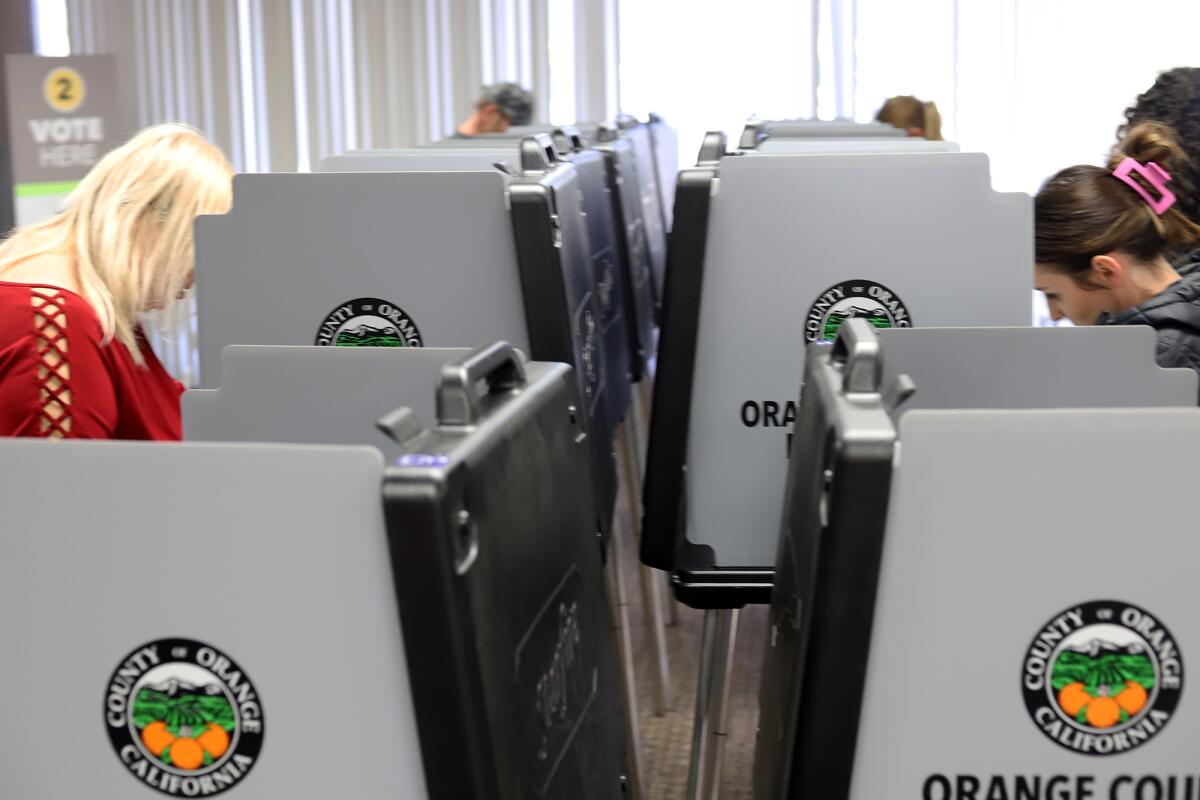
California Atty. General Rob Bonta and Secretary of State Shirley Weber have warned Huntington Beach that voter ID violates state law, and Bonta has threatened litigation if Measure A passes. A Huntington Beach resident, Mark Bixby, sought to remove Measure A from the ballot, but a judge denied that request, though Bixby has vowed to continue litigation if it passes.
Last month, State Sen. Dave Min (D-Irvine) introduced Senate Bill 1174, which would prohibit any local or municipal government in California from enacting or enforcing voter ID laws. If passed, it would go into effect in 2025 and supersede Huntington Beach’s Measure A.
Opponents of Measure A also questioned the cost of Huntington Beach running its own municipal elections. The city’s chief financial officer, Sunny Han, has estimated that the cost to hold an election could range from $1.3 million to $1.65 million, not including costs for cybersecurity or ballot tracking.
Huntington Beach Councilman Tony Strickland said he was extremely optimistic about Measures A and B. Measure B limits flags flown on city property to government and military flags, as well as the Olympic flag. It requires a unanimous City Council vote to change that limitation and fly, for example, the LGBTQ+ Pride rainbow flag, though that flag isn’t mentioned by name in the measure.
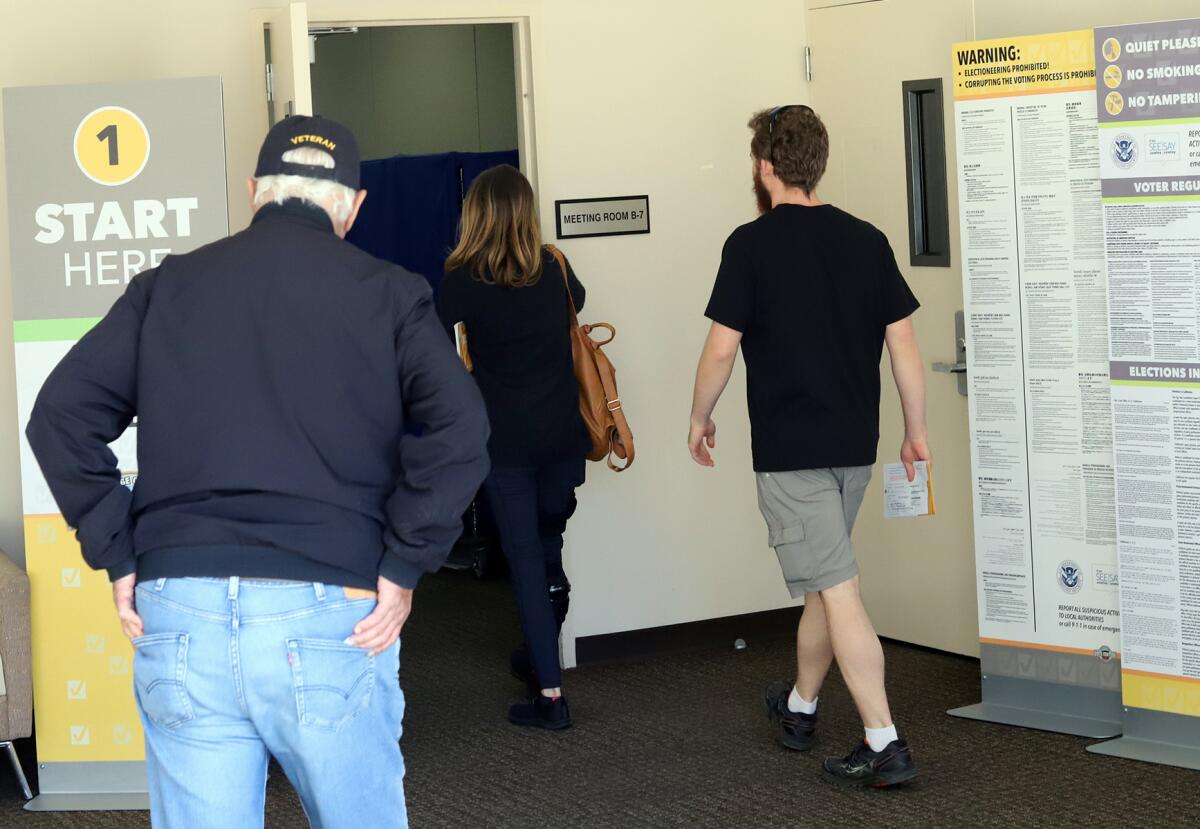
Measure C sought to move the city to a two-year budget cycle and give the mayor the power to cancel council meetings, among other changes.
Strickland has been a champion of voter ID, authoring a bill about in when in the state Legislature that didn’t end up passing.
“Even before Trump entered politics, I authored this bill,” he said. “It’s well within our authority to have local election laws … so I’m very confident that [Bonta] will definitely lose if he goes forward in a lawsuit. Put it this way: I’m not worried about it.
“I think the results show a lot of support of the way we’ve governed. [Tuesday] night was a very big positive, a good thing for the people of Huntington Beach.”
Strickland said he believes other cities statewide might start implementing voter ID requirements if and when Measure A passes.
Protect Huntington Beach, which was formed in opposition to the ballot measures, vowed to keep fighting. It held a watch party Tuesday night, attended by dozens of supporters including minority City Council members Dan Kalmick, Natalie Moser and Rhonda Bolton.
Protect HB co-founder Cathey Ryder said in an interview that she was cautiously optimistic but that was just before Measure A flipped to a “Yes” majority as of the 10:30 p.m. update from the Registrar of Voters on Tuesday night.
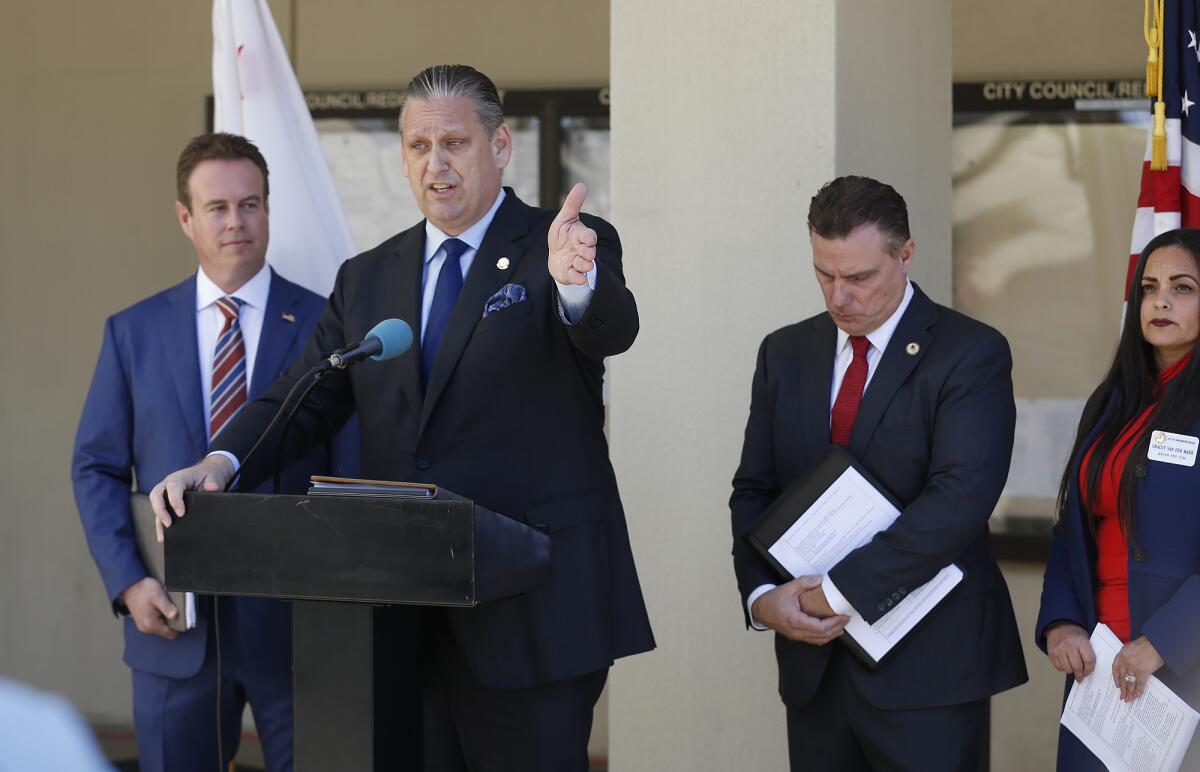
Protect HB vowed Wednesday to turn its fight to protecting the city’s libraries.
“We are disappointed in the outcome of Measures A & B passing,” the group said in a statement after Wednesday’s voting update. “We know that as a grassroots group, we did our best to educate the voting public on the facts of these measures. Although our message was heard across Huntington Beach, the state of California, the United States and internationally, in the end, we were unable to reach enough local voters.”
Moser said there’s a lot of work left to do.
“I think the grassroots activism has been ignited, and it’s just getting started,” she said. “Huntington Beach is a wonderful community, and there’s a lot to protect. They’ve just been shown again and again that there’s a group of people who are seeking to harm the city, and this group of people is not having it.”
All the latest on Orange County from Orange County.
Get our free TimesOC newsletter.
You may occasionally receive promotional content from the Daily Pilot.






